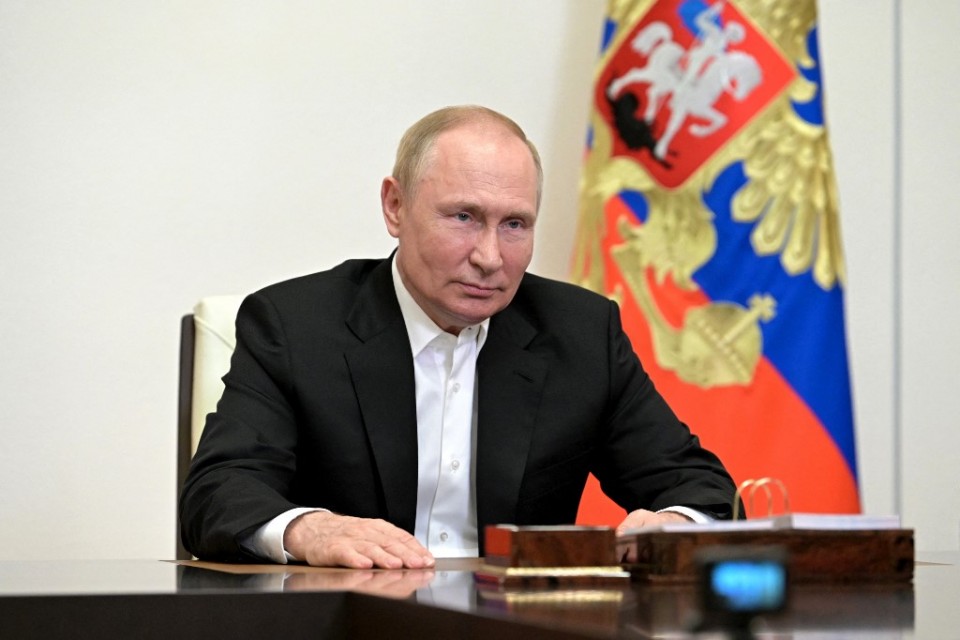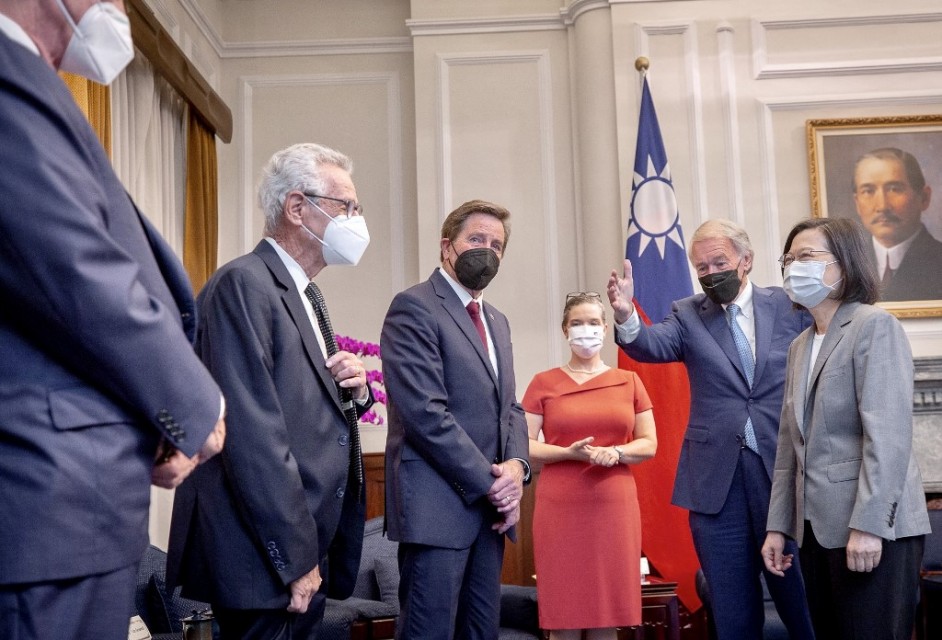Russian president accuses US of trying to prolong conflict in Ukraine, fueling potential for conflict in Asia

MOSCOW, Russia (AFP) — Russian President Vladimir Putin on Tuesday accused Washington of seeking to prolong the conflict in Ukraine and of fuelling conflicts elsewhere in the world, including with the visit of US House Speaker Nancy Pelosi to Taiwan.
“The situation in Ukraine shows that the US is trying to prolong this conflict. And they act in exactly the same way, fuelling the potential for conflict in Asia, Africa and Latin America,” Putin said in televised remarks, addressing the opening ceremony of a security conference in Moscow via video link.
“The American adventure in relation to Taiwan is not just a trip of an individual irresponsible politician, but part of a purposeful, conscious US strategy to destabilise and make chaotic the situation in the region and the world,” he added.
He said the visit was a “brazen demonstration of disrespect for the sovereignty of other countries and for its (Washington’s) international obligations”.
“We see this as a carefully planned provocation,” Putin said.

As it enters its sixth month, Moscow’s military intervention in Ukraine has killed thousands, forced millions to flee their homes and exacerbated food shortages across the world.
Speaking at the security conference, Russia’s Defence Minister Sergei Shoigu said Moscow does not plan to use nuclear weapons in Ukraine.
“From a military point of view, there is no need to use nuclear weapons in Ukraine to achieve the set goals,” Shoigu said.
“The main purpose of Russian nuclear weapons is to deter a nuclear attack,” he added.
Relations between Moscow and Washington have been in tatters since Russia in late February launched a military intervention in pro-Western Ukraine.
Pummelled by a barrage of unprecedented Western sanctions, Putin has sought to bolster ties with countries in Africa and Asia, especially with China.
Moscow was in full solidarity with key ally Beijing during Pelosi’s August visit to self-ruled, democratic Taiwan, which China considers its territory.
© Agence France-Presse








